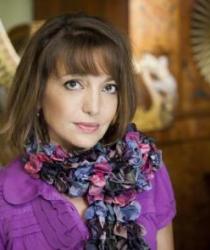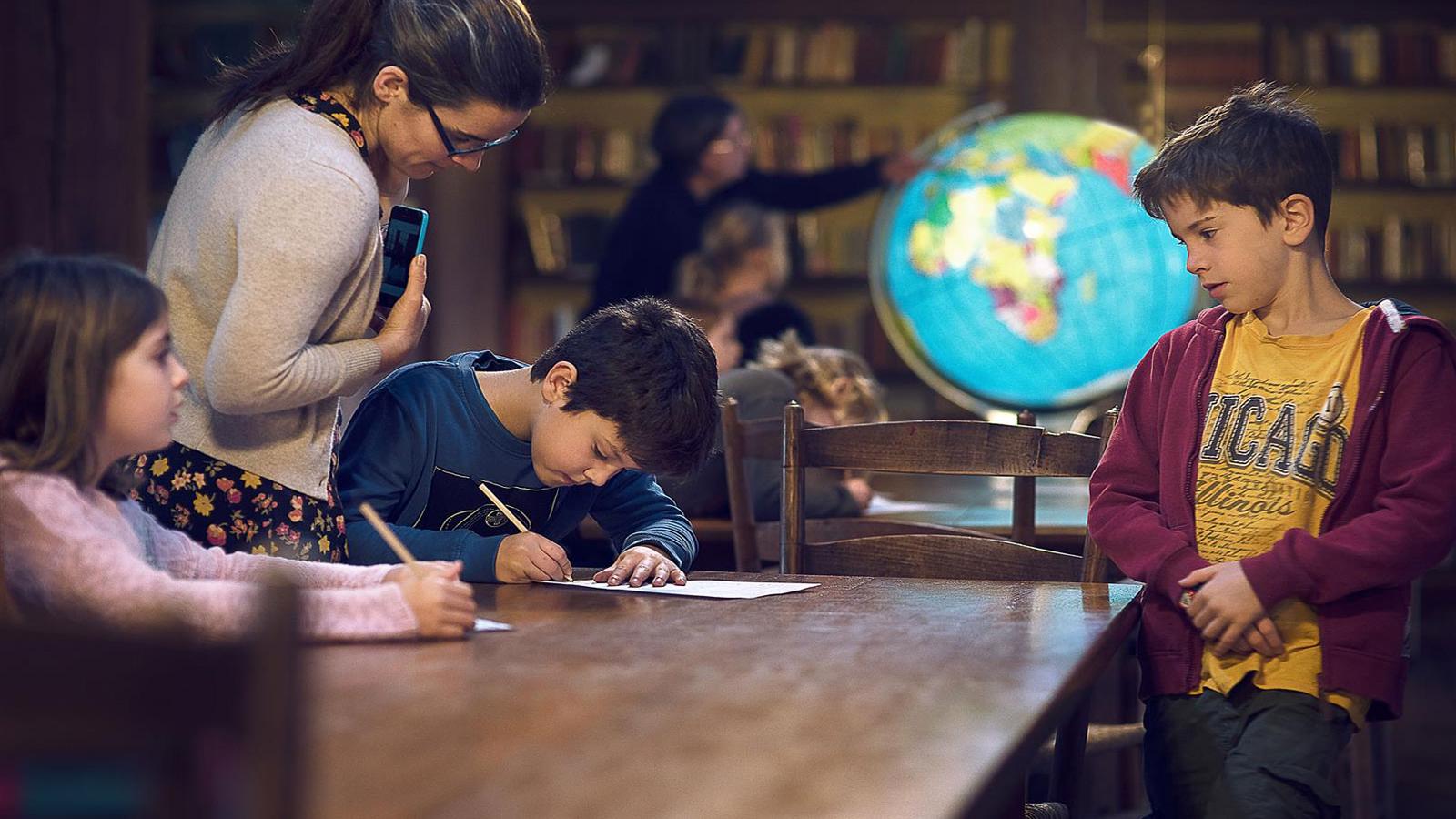
Despite her declaration that “institutions and I don’t mix”, Roxanna Panufnik still radiates great warmth when talking about her Bedales days. “The great thing about the school was that you could discover what you were good at and spend time on it,” she recalls. “The music department was a particularly huge part of my life. I especially remember Jonathan Willcocks and the fabulous chamber choir, with whom I once went on tour to Belgium. Bedales was also a very nurturing place, which was important for me because I arrived at the school at an odd time, in Block 4. I rebelled a bit and was generally rather awkward. In fact, I wasn’t especially comfortable in my skin until my A-level year, when suddenly, our year properly bonded together. Then life became rather idyllic, diverse and amazing.”
With a musical father as distinguished as the composer Sir Andrzej Panufnik, it might seem that Roxanna’s own path to her current status as one of Britain’s leading contemporary composers was pre-ordained for her. Not according to the person who ought to know. “I tried to do other things, to resist and break away, but I always seemed to get sucked back into music,” Roxanna reflects with amusement. “After Bedales, I went off to the Royal Academy of Music to study composition, where I soon found that the music that interested the professors was not what I wanted to listen to! I was always passionate about harmony and melody but so much seemed to be about modernism for its own sake. The upshot was that I didn’t do well in my exams, got told that my music was naïve, which I now absolutely see as a compliment, and left to get myself a job as a researcher at the BBC.”
The great thing about the school was that you could discover what you were good at and spend time on it
Roxanna regards her three-year spell at the BBC as a vital formative period in her life. “It definitely was,” she affirms. “I learned a bit more about the musical world, but just as importantly, I learned a lot about life itself. I loved it and eventually, my boss told me that I would have to make a choice: I could either become a producer or I could focus on classical music, but I couldn’t do both. It was my father’s death, when I was 23, which really made my mind up. Not long before he died, we had a wonderful conversation in which he emphasised how precious life is and how important it was that I should make the most of the time that I had. Being true to oneself and personal integrity were qualities that my parents always have stressed to me.”
Initially, Roxanna had the idea that composing for films would be her métier. Four terms at the National Film and Television school were enough to convince her that her talents lay in a different direction. “It was way too technical for me, I found it absolutely bewildering and completely beyond me,” she confesses. “At the time, I was just starting to get commissions to write music that I felt lay within my capability, and I decided to go for it.”
It was to prove an inspired decision. Over the past two decades, a stream of concertos, oratorios and chamber operas, as well as a huge variety of other sacred pieces, have poured from Roxanna’s prolific pen. Anyone expecting a similar style to that of her father might be surprised. “We were brought up in such different times that I can’t even imagine what his life must have been like,” she explains. “I had such a comfortable and happy childhood, while he had to flee Warsaw during the war and spent so much of his time after it having to evade the attentions of the KGB before coming to the West. So the inspiration behind our music is different; Dad was a spiritual man, but my music is clearly more overtly faith-based than his was.”
Roxanna’s interest in world music is perhaps most vividly expressed in her violin concerto Abraham, which the World Orchestra for Peace subsequently asked her to turn into an orchestral overture called Three Paths to Peace that premiered in Jerusalem, conducted by Valery Gergiev. That interest is also at the heart of Roxanna’s latest recording, Love Abide. The record, which features fragments of Spanish Sephardic chant, Christian plainsong, Sufi rhythms and Japanese lullaby, re-emphasises Roxanna’s belief that “writing what you really like is what will make you stand out from the crowd”. It also reminded her once again of what a huge blessing the internet has been to the composers of today. “I can’t imagine how anyone managed to research anything before the web age,” she gasps. “I’ve stumbled across an absolute treasure trove of inspirational material that makes the job of the composer so much easier than it ever was. I love Twitter and Facebook as well; in fact I’ve even had commissions through Facebook!”
As classical music moves into the 21st century and jostles for attention and funding with other forms of art and entertainment, Roxanna foresees changes ahead. “Classical music was treated with much more reverence in my father’s day and I think that the days of people sitting quietly at a concert for two hours at a stretch are probably numbered,” she suggests. “You can still see great performances in different settings, however. Musicians are going to communal places like pubs to find their audience and the visual aspect of music is becoming crucial today. My brother, for example (another Old Bedalian), has just completed a series of cartoons of musical instruments and I do believe that in the future, music will take its place as part of a multi-media forum.”
A formidable workload such as Roxanna’s needs equally formidable self-discipline to ensure that it stays on track. “I work to a schedule that’s sorted out about two years ahead of time, with premieres sometimes being advertised in advance of any music from me at all,” she reveals. “That means that if I miss any deadline, disaster ensues and the whole thing collapses in a giant domino effect. On average, I know that I produce about five minutes of music each month, so I can build time into what I do and I never produce a definitive score before the premiere. Inspiration can strike at any time - quite often it does when I’m driving and I always keep a paper and pencil by the bed – but mornings are strictly my time for work, when I can sit down at the piano and get on with it. The routine changes a bit when my children are on half-term or something similar, but discipline is the key to what I do.”
There is a restless energy and excitement about Roxanna as she contemplates her professional future. “I’d love to compose a full opera; you know, full cast, orchestra, the works!” she says happily. “Beyond that, if people continue to be willing to pay me for the next two or three decades for doing what I love, that would suit me fine!”
Roxanna Panufnik was interviewed by James Fairweather in February 2013.
